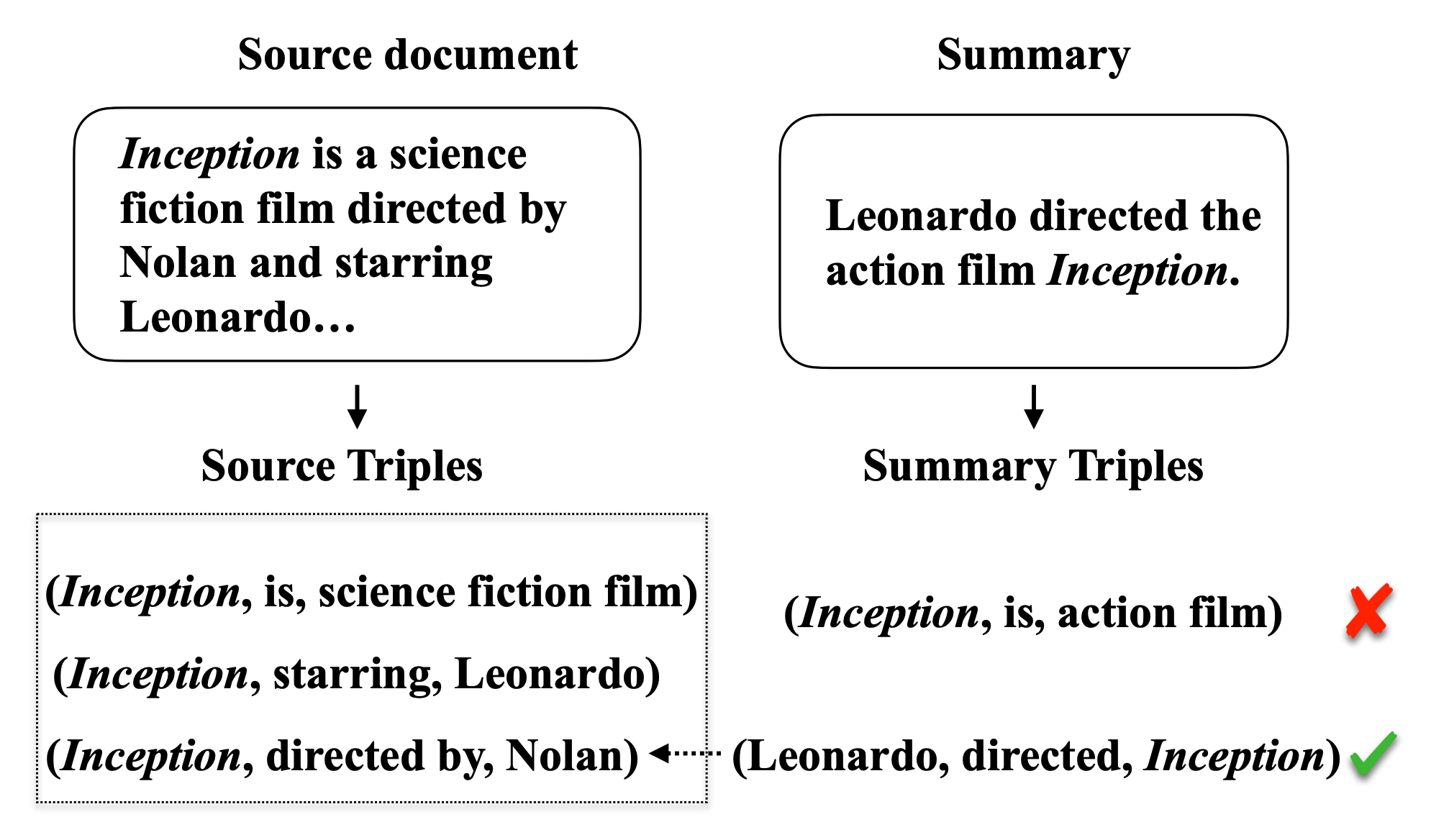Asking and Answering Questions to Evaluate the Factual Consistency of Summaries
Practical applications of abstractive summarization models are limited by frequent factual inconsistencies with respect to their input. Existing automatic evaluation metrics for summarization are largely insensitive to such errors. We propose an automatic evaluation protocol called QAGS (pronounced "kags") that is designed to identify factual inconsistencies in a generated summary. QAGS is based on the intuition that if we ask questions about a summary and its source, we will receive similar answers if the summary is factually consistent with the source. To evaluate QAGS, we collect human judgments of factual consistency on model-generated summaries for the CNN/DailyMail (Hermann et al., 2015) and XSUM (Narayan et al., 2018) summarization datasets. QAGS has substantially higher correlations with these judgments than other automatic evaluation metrics. Also, QAGS offers a natural form of interpretability: The answers and questions generated while computing QAGS indicate which tokens of a summary are inconsistent and why. We believe QAGS is a promising tool in automatically generating usable and factually consistent text.
PDF Abstract ACL 2020 PDF ACL 2020 Abstract


 CNN/Daily Mail
CNN/Daily Mail
 NewsQA
NewsQA